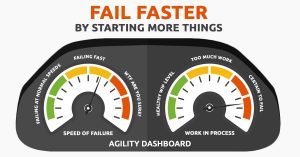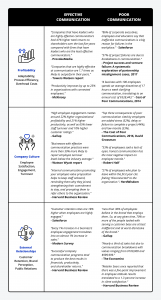Homegrown Marketing: The Hurdles To Localized Messaging
In theory, local marketing should be easier than national for email specialists — there’s less to worry about, right?
That’s not quite true, judging by Thrive With A Localized Marketing Strategy, a study by Forrester.
For one thing, it is hard to scale localized marketing and maintain a brand image across multiple stores nationwide.
Then there are the operational silos.
For instance, retail brands are likely to run social comment response in-house and let an agency handle other chores, such as local page optimization.
Think of that as you sit in your office and try to manage an email program that you’ve just been ordered to localize. Have the people on your opt-in list provided their locations and Zip codes?
Yet another hurdle is that 47% of firms use three or four tech tools for localized marketing when they really should be using one.
Here are the general obstacles to localization:
- Corporate marketing lacks the resources to effectively and efficiently manage all sites, posts and reviews across all locations — 36%
- Organizational silos — 35%
- The firm’s digital marketing strategy has historically had a national rather than a local focus — 31%
- It is difficult to balance customization at the local level with consistency at the national level — 31%
- Corporate marketing lacks location-specific knowledge or data to properly support localized marketing — 30%
- The team struggles to oversee the bran’s localized marketing efforts while providing the ability to participate and be engage when needed — 25%
- The firm struggles to properly assign local questions to be resolved, etc. to appropriate parties within the organization — 30%
Despite the hurdles, 79% of multilocation leaders believe customers are likely to engage with brands that personalize the connection.
And 73% agree that customers want their experiences to “align with their immediate context,” the study notes.
With or without email, this is largely a search issue: 86% of the respondents agree that consumers are increasingly looking for local business information on large search properties.
This research was conducted in March before the full impact of COVID-19 hit businesses. But the study notes that the COVID-19 pandemic, which has caused unprecedented operational disruption for many multilocation businesses, “has made developing local marketing competence a critical priority.” That said, the firms agree on the benefits:
- Greater alignment between the brand and its customers — 38%
- Improved marketing performance and effectiveness at the local level — 34%
- Increased store traffic — 34%
- Great brand trust and reputation in the markets served — 34%
- Great brand visibility at the local market/location level — 32%
- Better understanding into how to service, market, or create products for specific customer needs — 31%
Forrester surveyed 154 mutilocation marketing leaders.
(63)






